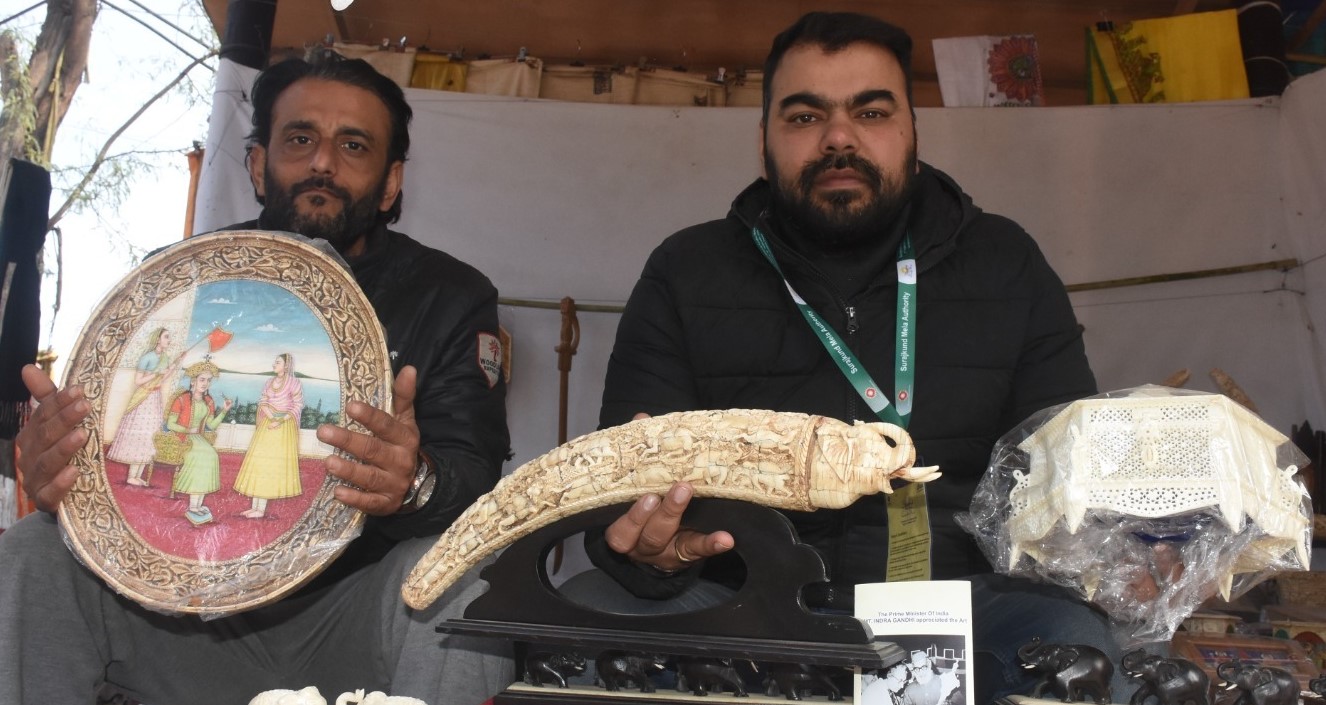Web India News
Faridabad, 16 February: Abdul Hasibu, a craftsman who has made a name for himself in ivory carving in India and abroad, has arrived at the 37th Surajkund International Crafts Fair. Tourists visiting his stall are sure to stop and admire his Mughal-era carving art. Hasibu has received the National Award from the then President Pranab Mukherjee in 2013 and the Shilp Guru Award from the then Vice President M. Venkaiah Naidu in 2018 for his ivory carving. He has beautifully displayed Mughal-era carvings at his stall.
Hasibu inherited the art of carving. He claims that his ancestors used to carve on elephant tusks during the reign of Shah Jahan and has been preserving the records of his ancestors’ carvings since 1892. In addition, his grandfather, Abdul Malik, was awarded the Presidential Award by the then President V.V. Giri in 1974 for ivory carving.
Carving on camel bones after the ban
Hasibu said that he had a lot of trouble saving the ivory carving he inherited after the ban on ivory. He started carving on camel bones instead. His art is very popular in India and abroad. He also carves on wood in addition to camel bone. He does various types of carving including filigree carving, wall panels, photo frames, book markers, paper cutters, and Munavvat craftsmanship. Hasibu says that the beauty of wood carving is enhanced by adding colors. He uses stone colors for this. He does his Mughal-era carving on camel bone as well as on Kadam, Sandalwood, and Ebony wood.
Akbar’s nine gems are a special attraction
Hasibu said that Akbar’s nine gems were very famous in his time. He has also carved these nine gems on sandalwood and decorated them with attractive stone colors. Tourists are showing a lot of interest in Akbar’s nine gems. Hasibu’s stall has artifacts ranging from Rs 200 to Rs 20,000.



